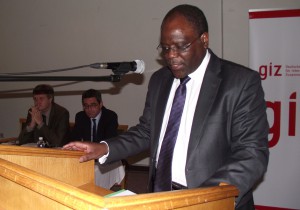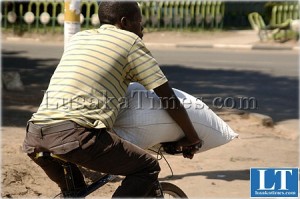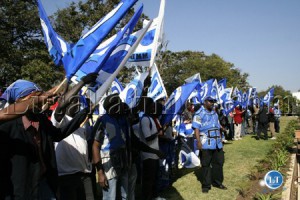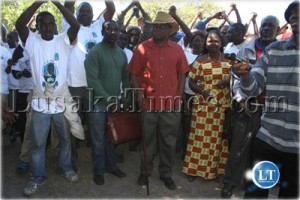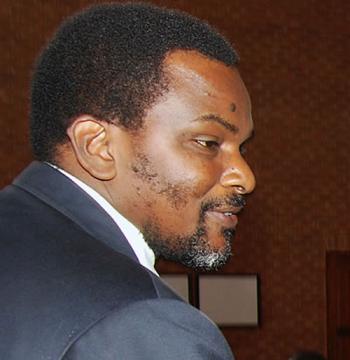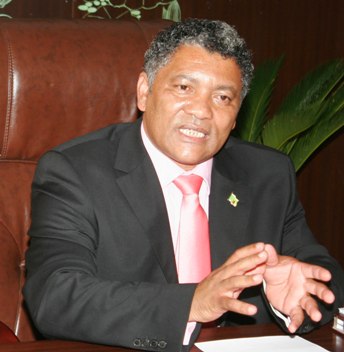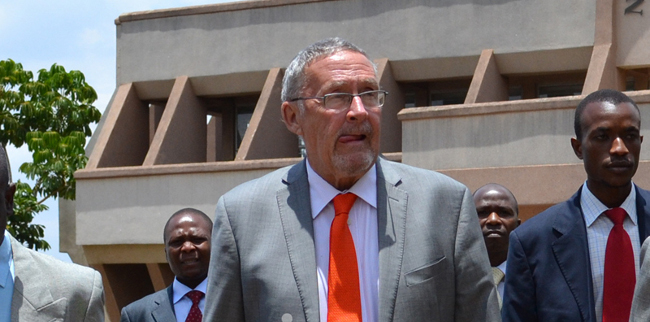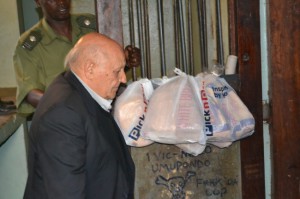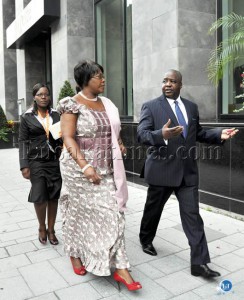
By Rev K.Kaoma
The selective application of the law under President Sata’s administration is nerve-wracking. Zambia is a democracy and not the “animal farm,” in which citizens are treated differently based on their socio-economic and political status. In a democracy, nobody is above the law. Yet recent events in the country show that our country is slowly sliding into the animal farm state.
Let me make my point. Last month, Rosemary Mwasakandu was arrested for holding multiple citizenship contrary to section 55 of the Immigration and Deportation Act. Magistrate Willie Banda denied Rosemary bail and reminded her at Chimbokaila. This month, President Sata appointed Professor Clive Chirwa as the head of Zambia Railways. The PF heralded the appointment as a sign of good leadership by the president. However, like Mwasakandu, Prof. Chirwa held dual citizenship – Zambian and British. But unlike Mrs Mwasakandu, he was not arrested.
Another case of animal farm has to do with fake qualifications. On Thursday July 28, 2012, the Anti-Corruption Commission arrested Danny Mulwanda of Kasama for using false documents contrary to Cap 87 of the Laws of Zambia. Danny’s case reminds us of the corrupt Henry Kapoko, whose wife, Mary Mwamba, was arrested for forging a grade 12 statement of results in 2009. Yet president Sata saw nothing wrong in appointing Stephen Masumba as minister of North Western Province at the time when his academic credentials are being challenged in the court of law. These two cases simply illustrate president Sata’s lack of ethical judgment and seriousness in fighting corruption in the nation.
Let me remind the president that he was elected to uphold our constitution. As a Christian, he promised to rule the country by 10 commandments – pledging to fight all forms of corruption and injustices. Sadly within one year, those promises have totally evaporated and faded – turning our beloved nation into the animal farm – where our constitution is replaced by one fundamental rule – ALL ANIMALS ARE EQUAL BUT SOME ANIMALS ARE MORE EQUAL THAN OTHERS.[pullquote]I submit, we have some bad laws in our nation and dual citizenship is just one of them. I would have no problem if all Zambians were not prosecuted for such crimes. That the poor people are imprisoned for violating such laws while well-connected individuals are given a pass is deplorable, immoral and unjust at its worst. [/pullquote]
Regardless of our political affiliations, Professor Chirwa broke the law of Zambia. In fact, had he sided with Nevers Mumba’s MMD or HH’s UPND, Prof. Chirwa would be caged by now. It is disheartening that for sometime now,our freedoms are no longer determined not by the constitution of the land but by our political affiliations and social status. For this reason, I have misgivings about the PF government’s commitment to fighting corruption in the nation. I am sure I am not alone.
Please don’t misunderstand me. I have nothing against Professor Chirwa. I believe he is qualified to head Zambia Railways. In fact, unlike President Sata, I want Zambia to legalize dual citizenship. After all, my children hold American citizenship and I would love to call them Zambians one day. But my problem is simply this – why is Prof. Chirwa treated as a sacred cow when other Zambians are forced into dirty prisons for the same crime? Only the animal farm metaphor can provide the explanation – not all citizens are equal in Sata’s Zambia. Honestly, I can sympathize with Mrs Mwasakandu over Professor Chirwa. Dr. Chirwa is well vested with the laws of Zambia and knowingly broke it. So to give him a pass is just erroneous and an insult to democracy.
We all know that Dr. Chirwa campaigned for President Sata in 2011. In this case, it is payback time. However, the PF government is not the law of the land – our constitution is. The PF administration should not ride on the bandwagon of “the rule of law” while applying it selectively. So unless section 55 of the Immigration and Deportation Act is unconstitutional, Sata’s government owes the people of Zambia an explanation as to why Prof. Chirwa is not arrested. But since Zambia police aid the cult of the president, Mrs Mwasakandu is a criminal while Prof. Chirwa is clean.
On the moral front, for Mr. Sata to uphold Chirwa’s appointment – knowing too well that he held dual citizenship says much about the president’s judgement and character. If Sata allowed the law to take its course, many of us would have taken his pledge to fight corruption seriously. Alas, he sings anti-corruption songs only when it fits him. I submit, we have some bad laws in our nation and dual citizenship is just one of them. I would have no problem if all Zambians were not prosecuted for such crimes. That the poor people are imprisoned for violating such laws while well-connected individuals are given a pass is deplorable, immoral and unjust at its worst.
It is gravely depressing that in our country, some citizens are beyond the law. In fact, big fishes can do whatever they want without any fear of prosecution. It is for this reason that we Zambians should unite in rejecting the PF “animal farm” for democracy. Please let us put all our political and tribal differences aside and demand a Zambia where no person is above the law. Together we can make Zambia a better place for all – not just for the chosen few.


